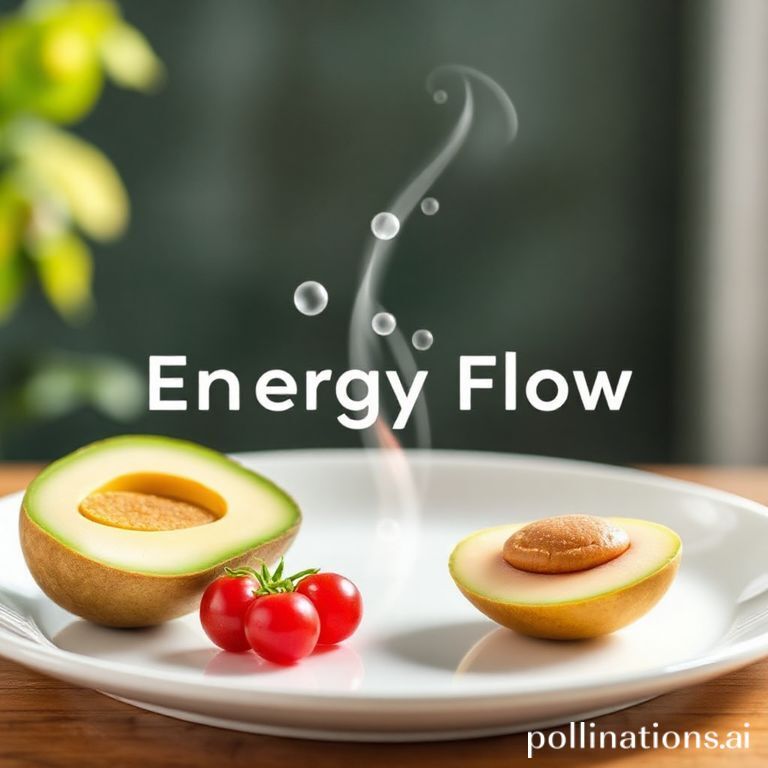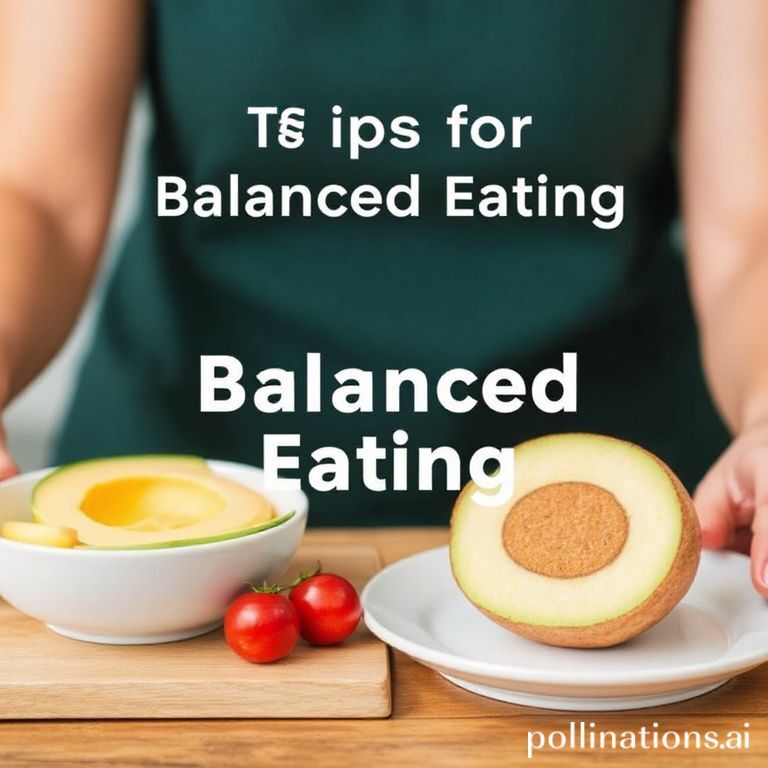Balanced eating is essential for maintaining a healthy lifestyle. It involves consuming a variety of foods in the right proportions to provide the body with the necessary nutrients.
Energy flow is also crucial for optimal health, as it ensures that the body’s systems are functioning correctly. In this article, we will discuss the importance of balanced eating and energy flow and how they are interconnected.
We will also provide tips on how to achieve a balanced diet and maintain energy flow for a healthier life.
The Benefits of Balanced Eating
1. Improved Physical Health
Eating a balanced diet has numerous benefits for physical health. A diet rich in fruits, vegetables, whole grains, lean proteins, and healthy fats provides essential nutrients that support the body’s overall well-being. These nutrients help to strengthen the immune system, promote healthy digestion, and maintain a healthy weight. Additionally, a balanced diet can reduce the risk of chronic diseases such as heart disease, diabetes, and certain types of cancer.
For example, consuming a variety of fruits and vegetables provides the body with vitamins, minerals, and antioxidants that help protect against oxidative stress and inflammation. Whole grains are a great source of fiber, which aids in digestion and helps regulate blood sugar levels. Lean proteins, such as fish, poultry, and legumes, provide essential amino acids for muscle growth and repair. Healthy fats, found in foods like avocados, nuts, and olive oil, support brain function and heart health.
2. Enhanced Mental Well-being
A balanced diet not only benefits physical health but also plays a crucial role in maintaining mental well-being. Certain nutrients have been linked to improved mood, cognitive function, and overall mental health. For instance, omega-3 fatty acids, found in fatty fish like salmon and walnuts, are known to support brain health and reduce the risk of depression and anxiety.
Furthermore, a balanced diet can help stabilize blood sugar levels, which can prevent mood swings and promote a more stable emotional state. Consuming foods rich in vitamin B12, such as eggs, dairy products, and fortified cereals, can also support brain function and prevent cognitive decline.
3. Increased Energy Levels
A well-balanced diet provides the body with the energy it needs to function optimally. When we eat a variety of nutrient-dense foods, our bodies are supplied with the necessary macronutrients (carbohydrates, proteins, and fats) and micronutrients (vitamins and minerals) to fuel our daily activities.
Carbohydrates, in particular, are the body’s primary source of energy. Consuming complex carbohydrates, like whole grains, legumes, and vegetables, ensures a steady release of glucose into the bloodstream, providing sustained energy throughout the day. Proteins also play a crucial role in energy production, as they are essential for muscle repair and growth. Healthy fats, though often misunderstood, are an important energy source and help the body absorb fat-soluble vitamins.
| Physical Health Benefits | Mental Well-being Benefits | Increased Energy Levels Benefits |
|---|---|---|
| Strengthens the immune system | Supports brain health | Provides sustained energy |
| Promotes healthy digestion | Reduces the risk of depression and anxiety | Aids in muscle repair and growth |
| Helps maintain a healthy weight | Stabilizes blood sugar levels | Supports absorption of fat-soluble vitamins |

Key Components of a Balanced Diet
A balanced diet is essential for maintaining good health and providing the body with the necessary nutrients it needs to function properly. The key components of a balanced diet include macronutrients, micronutrients, fiber, and water.
1. Macronutrients: Carbohydrates, Proteins, and Fats
Macronutrients are the nutrients that the body needs in large amounts to provide energy. They include carbohydrates, proteins, and fats.
- Carbohydrates: Carbohydrates are the body’s main source of energy. They are found in foods such as bread, rice, pasta, and fruits.
- Proteins: Proteins are essential for growth, repair, and maintenance of body tissues. Good sources of proteins include meat, fish, eggs, and legumes.
- Fats: Fats are important for insulation, protecting organs, and providing energy. Healthy sources of fats include avocados, nuts, and olive oil.
2. Micronutrients: Vitamins and Minerals
Micronutrients are the nutrients that the body needs in smaller amounts but are still essential for good health. They include vitamins and minerals.
- Vitamins: Vitamins are important for various bodily functions and are found in fruits, vegetables, and fortified foods. Examples of vitamins include vitamin C, vitamin D, and vitamin B12.
- Minerals: Minerals play a vital role in maintaining healthy bones, teeth, and overall body function. Good sources of minerals include dairy products, leafy greens, and nuts.
3. Fiber and Water
Fiber and water are important components of a balanced diet that are often overlooked.
- Fiber: Fiber aids in digestion, helps maintain a healthy weight, and reduces the risk of certain diseases. Foods rich in fiber include whole grains, fruits, and vegetables.
- Water: Water is essential for hydration and helps regulate body temperature, lubricate joints, and transport nutrients. Integral to drink an adequate amount of water throughout the day.
Tips for Achieving Balanced Eating
Relating to maintaining a healthy lifestyle, balanced eating plays a crucial role. By upholding these tips, you can ensure that you are nourishing your body with the right nutrients:
1. Eat a Variety of Foods
2. Portion Control and Moderation
Controlling your portion sizes and practicing moderation is key to balanced eating. Pay attention to your body’s hunger and fullness cues, and avoid overeating. Be mindful of your portion sizes, and try to include all the necessary food groups in each meal.
3. Incorporate Whole Foods
Whole foods, such as fruits, vegetables, whole grains, and lean proteins, should form the foundation of your diet. These foods are rich in nutrients and fiber, which can help support overall health and digestion. Limit processed foods and opt for whole, unprocessed options whenever possible.

The Role of Exercise in Balanced Eating
In order to achieve a balanced and healthy lifestyle, exercise plays a crucial role. Regular physical activity not only helps in maintaining weight but also contributes to overall well-being. Let’s pioneer the importance of exercise and the types of exercises that promote energy flow.
Importance of Regular Physical Activity
Exercise is essential for maintaining a healthy weight and preventing chronic diseases such as obesity, diabetes, and heart conditions. Engaging in regular physical activity helps burn calories, build muscle strength, and improve cardiovascular health. It also boosts mood, reduces stress levels, and enhances mental clarity.
Types of Exercises for Energy Flow
There are various types of exercises that promote energy flow and contribute to a balanced eating routine:
Aerobic Exercises:
- Running
- Cycling
- Swimming
- Dancing
Strength Training:
- Weightlifting
- Resistance band exercises
- Bodyweight exercises
Flexibility Exercises:
- Yoga
- Pilates
- Stretching exercises
Each of these exercises contributes to energy flow, improves metabolism, and helps in maintaining a healthy weight. It is essential to choose exercises that you enjoy and can incorporate into your daily routine.
| Exercise Type | Benefits |
|---|---|
| Aerobic Exercises | Burns calories, improves cardiovascular health |
| Strength Training | Builds muscle strength, boosts metabolism |
| Flexibility Exercises | Enhances joint mobility, reduces muscle stiffness |

Meal Planning for Balanced Eating
Meal planning is an essential tool for maintaining a balanced and nutritious diet. By carefully organizing your meals and snacks, you can ensure that you are getting all the necessary nutrients your body needs. Here are some tips to help you create a weekly meal plan:
Create a Weekly Meal Plan
Start by deciding on the number of meals you want to plan for each day, taking into account your schedule and dietary requirements. Consider including a variety of foods from different food groups to ensure a well-rounded diet. Make sure to include a balance of carbohydrates, proteins, and fats, as well as plenty of fruits and vegetables.
Plan Breakfast, Lunch, and Dinner
Begin by planning your main meals for each day. Include a source of lean protein, such as chicken or fish, along with whole grains and a variety of vegetables. Experiment with different flavors and cuisines to keep your meals interesting and enjoyable.
Snack Smart
Don’t forget to plan for snacks throughout the day. Opt for healthy options like fresh fruit, Greek yogurt, or nuts. These will help keep your energy levels stable and prevent overeating at mealtime.
Grocery Shopping Tips
Once you have your meal plan in place, it’s time to hit the grocery store. Here are some tips to make your shopping trip more efficient:
Make a List
Before heading to the store, make a detailed list of all the ingredients you need for your planned meals. This will help you stay focused and avoid impulse purchases.
Shop the Perimeter
When navigating the aisles, focus on the perimeter of the store where the fresh produce, meats, and dairy products are typically located. These whole foods are the foundation of a healthy diet.
Read Labels
When selecting packaged foods, be sure to read the labels carefully. Look for products that are low in added sugars, sodium, and unhealthy fats. Choose whole grain options whenever possible.
Don’t Shop Hungry
Avoid shopping on an empty stomach as it can lead to impulsive and unhealthy food choices. Have a nutritious snack before heading to the store to help you make better decisions.
Meal planning and smart grocery shopping are key to maintaining a balanced and nutritious diet. By taking the time to plan your meals and make thoughtful choices at the store, you can set yourself up for success in achieving your health and wellness goals.
| Meal Planning Benefits | Grocery Shopping Tips |
|---|---|
|
|
Read More:
1. Nourish Mindfully: Chakra-Centric Nourishment
2. Holistic Fuel: Nourish Your Chakras Holistically